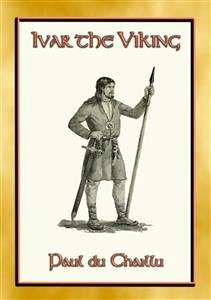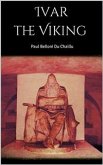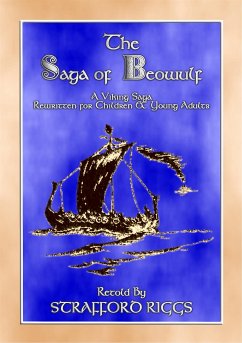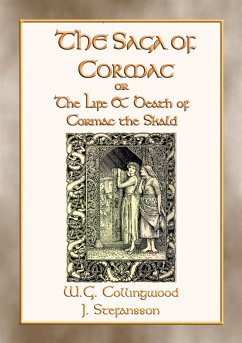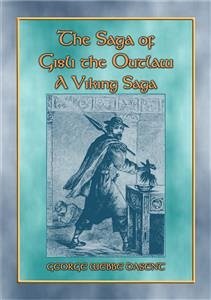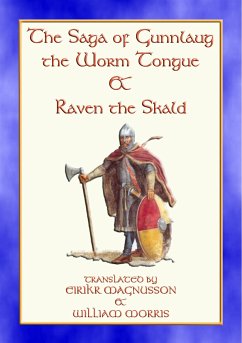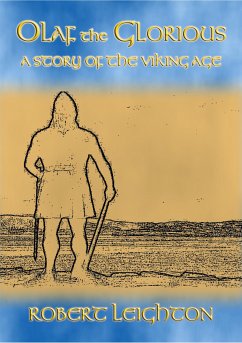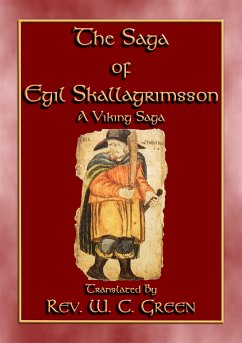The story of “Ivar the Viking” depicts the actual life of Norse chiefs who ruled during the 4th Century. It also gives the customs, religion, life, and mode of thinking which prevailed among the people. It is the intention of the author to give a correct outlook of the civilization of the Norsemen of that period, the men who arrived at the gates of Rome and Byzantium, and settled in Britain, Gaul, Germania, Russia, the Ukraine and on the shores of the Mediterranean, and other countries. The author begins the story of his hero with his birth, accompanied by the characteristic ceremonies attending it. We are told of his fostering, his education, his coming of age, of the precepts of wisdom he is taught, of his foster-brothers, of the sacred ceremony of foster-brotherhood, of his warlike expeditions and commercial voyages, of the death and funeral of his father, of his accession to rule, and other similarly typical Viking events. In short, a typical Viking Saga. NOTE: There is not an object, a jewel, either Norse, Roman, Greek, Muslim, Central Asian or a coin mentioned, that has not been found in the present Scandinavia, and they can be seen today in its museums, and often in great numbers. When this book was first published it caused controversy as the author claimed the early pre-Saxon settlers of Britain were of Norse descent. It was from comparing the graves and antiquities of the Norselands with those of England that proof that the early settlers of Britain were Norsemen. There is a scene in this volume, of Ivar going to visit his kinsmen on the banks of the River Cam, in England, has been described, because there is a cemetery there whose antiquities show its Norse origin, and the Roman coins buried with them, of Trajanus, 98-117 A.D.; of Hadrianus, 117-138; Faustina, wife of Antoninus Pius, 138-161; Marcus Aurelius, 161-180; of Maximianus, 286-305, show how early Norse settlements began. The Roman records are correct. No countries but the islands of the Baltic and Scandinavia correspond to their description. But it is there that we find a great number of Roman objects. Coins are there found from the time of the foundation of the empire—those of Augustus 29 B.C. to 14 A.D., of Tiberius 14-37, Claudius 41-54; then in increased number those of Nero 54-68, Vitellius 69, Vespasian 69-79, of Titus 79-81; in still greater number those of Trajan 98-117, Antoninus Pius 138-161, of Faustina the elder, wife of Antoninus Pius, of Marcus Aurelius 161-180, of Faustina his wife, of Commodus 180-192; then in decreasing quantities the coins of the subsequent emperors. By the side of these coins and other Roman objects are Norse objects, and these Norse objects are, as I have said, similar to those found in the England of a corresponding period. The mode of burial is also identical in both countries. These facts tell plainly who were the people who settled in Britain before and after the time of Ivar the Viking and of the Roman occupation. 10% of the net sale will be donated to charities by the publisher. ============== KEYWORDS/TAGS: Ivar the Viking, Norse, Saga, Hero, Asgard, Odin, Thor, Æsir, Loki, Hjorvard, Gotland, Viking Land, Vikings, Oracle, Birth, Life Forecast, Fostering, Attains Majority, Expedition, Yule Sacrifice, Defeat of the Romans, Visit to Britain, Daughters of Ran, Romantic, Adventures, Sigurd, Voyage, Caspian, Haki, Burning, Journey to Valhalla, Death, Burning of Hjorvard, Helgi, Valkyrias, Inheritance Feast, Starkad’s Indemnity, Slaying of Starkad, Session of the Thing, Visit to Yngvi, Poets, Champions, Three, Beautiful, Daughters, Guests, Hersir, Svithjod, Sweden, Athletic Games, Great Feats, Hjalmar, Foster-Brothers, Fall in Love, Romance, Betrothal, Ivar and Randalin, Duel, Ketil, Astrid, Wedding

